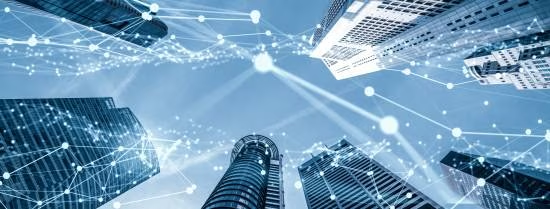The MSc in Urban Digital Transformation & Innovation Master track aligns closely with several Sustainable Development Goals (SDGs), including SDG 7 (Affordable and Clean Energy), SDG 8 (Decent Work and Economic Growth), SDG 9 (Industry, Innovation, and Infrastructure), SDG 10 (Reduced Inequalities), SDG 11 (Sustainable Cities and Communities), and SDG 12 (Responsible Consumption and Production). Delve into our contributions through a curriculum designed to address the pressing challenges of our time, fostering innovation, inclusivity, and resilience for a more sustainable urban future.

SDG 7: Affordable and Clean Energy
Goal 7 is about ensuring access to clean and affordable energy, which is key to the development of agriculture, business, communications, education, healthcare and transportation. The course explores some of the challenges associated with the transition towards renewable energy sources, including discussions on energy efficiency efforts and the implementation of policies towards electrification in transport systems in Modules 1 and 2.

SDG 8: Decent Work and Economic Growth
Goal 8 is about promoting inclusive and sustainable economic growth, employment and decent work for all. The course explores several aspects related to the implications brought about by digitalisation and technological innovation in economic development, specifically regarding the changes in employment opportunities for different populations and overall economic growth, particularly in Module 2.

SDG 9: Industry, Innovation, and Infrastructure
Goal 9 seeks to build resilient infrastructure, promote sustainable industrialization and foster innovation. The course examines technological development in terms of "transitions", that is, how new (at times disruptive) technologies in different industries can get selected and become mainstream thanks to the interaction among a variety of actors Module 1). Likewise, the course explores the general and geographical specific drivers of innovation and sustainable industrialisation efforts (Module 2).

SDG 10: Reduced Inequalities
Goal 10 is about reducing inequality that threatens long-term social and economic development, harms poverty reduction and destroys people’s sense of fulfilment and self-worth. The course explicitly explores how innovation and digitalisation may reduce or, in fact, widen existing socio-economic inequalities, for instance, by exploring what the digital divide implies in cities as part of Module 1 and 2.

SDG 11: Sustainable Cities and Communities
Goal 11 is about making cities and human settlements inclusive, safe, resilient and sustainable. By exploring the intersection between governance and digitalisation, the course explores the implications of urban digital transformation and innovation for the inclusiveness of urban residents (Module 2).

SDG 12: Responsible Consumption and Production
Goal 12 is about ensuring sustainable consumption and production patterns, which is key to sustaining the livelihoods of current and future generations. The course touches upon the intersection between digital and energy transitions in cities and urban regions and discusses some of the implications of this change for the efficient and responsible use of natural resources (Modules 1 and 2).
Got any questions about this programme? We're here to help
Enrolment Office
- Email address
- courseinquiries@ihs.nl
